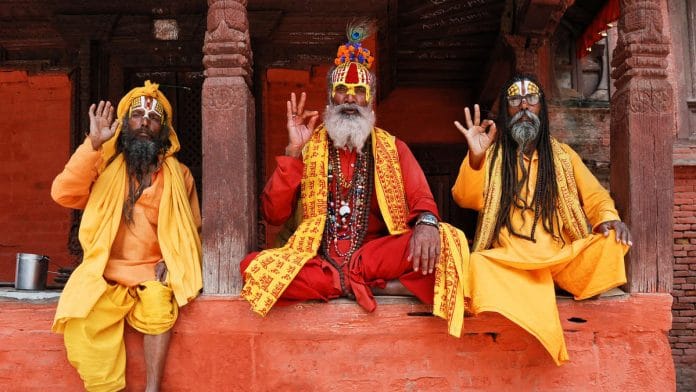
Thank you dear subscribers, we are overwhelmed with your response.
Your Turn is a unique section from ThePrint featuring points of view from its subscribers. If you are a subscriber, have a point of view, please send it to us. If not, do subscribe here: https://theprint.in/
More often, strong beliefs are needed only when the story is not true. How can we base our life in beliefs when we are told that we must do something just because it is ordained in some old text or only because our forefathers (or foremothers) did it in their time. Where do we put independent thought and freedom in such a scenario? Religion imprisons God and its followers. A free society, that aspires for free thought, speech and action should not be bound in the shackles of religious methods, from medieval which more often discriminate between humans.
It is not as if contemporary morality derives from the ten commandments and all humans, before the days of the Abrahamic religions, lived in a Hobbesian state of nature devoid of morality. This is a blatantly selfserving and shackling notion, ignoring the glorious ancient civilisations. Evidence shows early civilisations were bound by codes and morality as did stone age hunter-gatherer tribes had moral codes tens of thousands of years before humans. In the late fifteenth century when Europeans swamped the Americas, the indigenous tribes unaware of any religion had well developed ethical standards – better than the “enlightened” invaders who violently disposed them. For the records, science has since established that animals had ethics and morals much before the advent of humans.
None of the religions and Nations of today existed when humans colonized this world, domesticated plants and animals, built villages and cities, invented scripts, money and music. Morality and spirituality are universal abilities embedded in human DNA. Cosmic power and the law maker, surely, preceded evolution of humans. Religions evolved as local movements promising people to get them nearer to some God and in the process, inspired love and compassion in some and spread hate and bigotry in some others. Love and compassion were in the human DNA much before religions; hence it would be rational to say that religions more predominantly and emphatically are reasons for the spread of hate and racism in the world today. Religions and cultural tensions are made worse by the grand narratives in holy texts that this religion and this culture are the most important in the world to the extent of discrediting others. Some holy texts even encourage violence against “non-believers”. Abrahamic religions regard all history prior to Abraham, as nonexistent and terming the newly founded religions as “revelation”, which evidently is not.
Emperor Ashoka, in 250 BC, tolerated all philosophies in his kingdom. The purported different philosophies of Hinduism, Jainism and Buddhism all had an equal place in his palace. This is an example from nearer home to show that secular ethics, like compassion, do not rely on edicts of Gods, but rather on a deep appreciation of suffering. Secular people should certainly be proud of the uniqueness of their particular Nation, country and culture. Secular people cherish freedom and shun superior authority in texts, institution or a leader. Secular code takes precedence over religious doctrine. Secular ideal is commitment to truth, which is more smelling the Coffee rather than listening to gossip; their views are based on observation and evidence rather than on mere faith or belief. Do not confuse truth with belief. Truth does not reveal itself unless you go looking for it. One is more likely to find truth in people and societies rather than in old medieval texts.
In these times, world and National matters have become too complicated for any one person to understand. One is more prone to fall victim to propaganda and misinformation. “Information” available in the digital media is overwhelming. We create mythical creatures of ordinary human
beings and bestow then with powers of rational thinking. This rational individual may well be someone with dogmatic ideas with preconceived notions glorifying the elit e. At the other end of the spectrum, we havesuch rationalists who voice the “cause” of the down trodden without really giving a wholesome solution for mitigating misery except for canvassing for concessions. People today read, listen and parrot what they want to see, hear and repeat. There is too much emphasis on group think. Humans have evolved based on the knowledge of each other and group think. This made sense in the past centuries but has its own pitfalls in today’s times. Those who know nothing about fossilisation or meteorology propose policies regarding climate change while others hold strong views on economy without knowing the subject beyond income and expenditure. Even with the extent of globalisation we have today, it is definitely not one size fits all. Government policies have to be in consonance with the long-standing culture of the land.
Tailpiece: The change has to start with religions, especially its methods. It is the society and not the governments to ensure that religions emerge from its cocooned space rather than advocate tolerance of the intolerant as secularism.
These pieces are being published as they have been received – they have not been edited/fact-checked by ThePrint.


COMMENTS